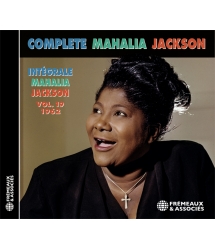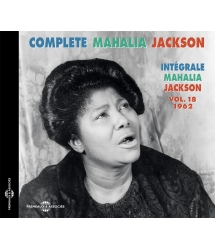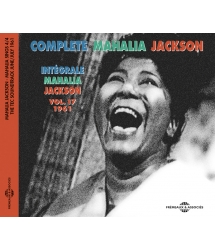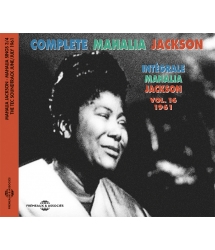- Our Catalog
- Philosophy
- Philosophers of the 20th century and today
- History of Philosophy (PUF)
- Counter-History and Brief Encyclopedia by Michel Onfray
- The philosophical work explained by Luc Ferry
- Ancient thought
- Thinkers of yesterday as seen by the philosophers of today
- Historical philosophical texts interpreted by great actors
- History
- Books (in French)
- Social science
- Historical words
- Audiobooks & Literature
- Our Catalog
- Jazz
- Blues
- Rock - Country - Cajun
- French song
- World music
- Africa
- France
- Québec / Canada
- Hawaï
- West Indies
- Caribbean
- Cuba & Afro-cubain
- Mexico
- South America
- Tango
- Brazil
- Tzigane / Gypsy
- Fado / Portugal
- Flamenco / Spain
- Yiddish / Israel
- China
- Tibet / Nepal
- Asia
- Indian Ocean / Madagascar
- Japan
- Indonesia
- Oceania
- India
- Bangladesh
- USSR / Communist songs
- World music / Miscellaneous
- Classical music
- Composers - Movie Soundtracks
- Sounds of nature
- Our Catalog
- Youth
- Philosophy
- News
- How to order ?
- Receive the catalog
- Manifesto
- Dictionnary











- Our Catalog
- Philosophy
- Philosophers of the 20th century and today
- History of Philosophy (PUF)
- Counter-History and Brief Encyclopedia by Michel Onfray
- The philosophical work explained by Luc Ferry
- Ancient thought
- Thinkers of yesterday as seen by the philosophers of today
- Historical philosophical texts interpreted by great actors
- History
- Books (in French)
- Social science
- Historical words
- Audiobooks & Literature
- Our Catalog
- Jazz
- Blues
- Rock - Country - Cajun
- French song
- World music
- Africa
- France
- Québec / Canada
- Hawaï
- West Indies
- Caribbean
- Cuba & Afro-cubain
- Mexico
- South America
- Tango
- Brazil
- Tzigane / Gypsy
- Fado / Portugal
- Flamenco / Spain
- Yiddish / Israel
- China
- Tibet / Nepal
- Asia
- Indian Ocean / Madagascar
- Japan
- Indonesia
- Oceania
- India
- Bangladesh
- USSR / Communist songs
- World music / Miscellaneous
- Classical music
- Composers - Movie Soundtracks
- Sounds of nature
- Our Catalog
- Youth
- Philosophy
- News
- How to order ?
- Receive the catalog
- Manifesto
- Dictionnary
INTEGRALE MAHALIA JACKSON VOL 12
MAHALIA JACKSON
Ref.: FA1322
EAN : 3561302132228
Artistic Direction : JEAN BUZELIN
Label : Frémeaux & Associés
Total duration of the pack : 58 minutes
Nbre. CD : 1
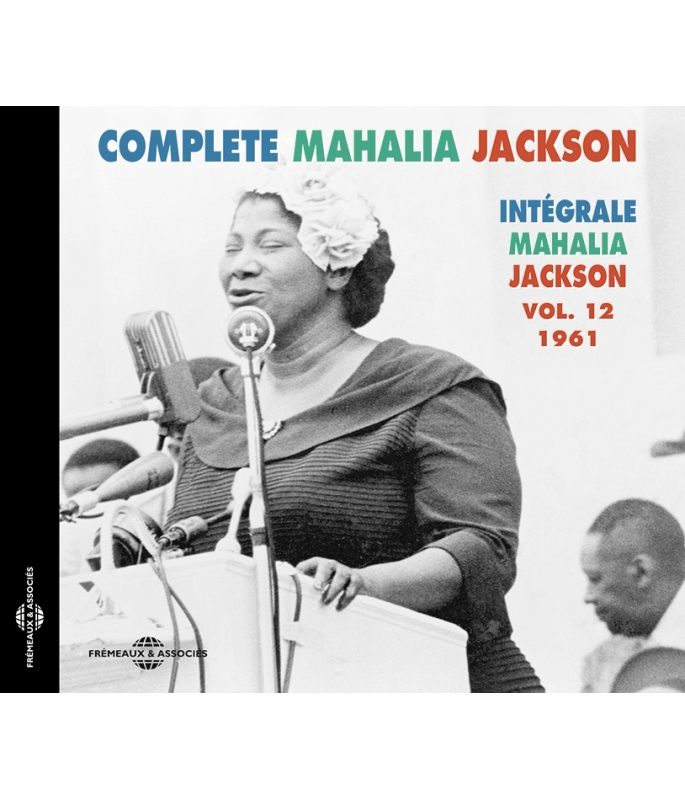
INTEGRALE MAHALIA JACKSON VOL 12
INTEGRALE MAHALIA JACKSON VOL 12
“Tell them about your dream, Martin”. Mahalia Jackson to Martin Luther King (Washington, 23 August 1963)
The complete Mahalia Jackson recordings (presented chronologically as in the Sister Rosetta Tharpe series) reveal a personality who will remain one of the greatest-ever Gospel artists, a singer who filled 20th century Afro-American culture with inspiration. The source of this vital music is the collection of Jean Buzelin, the author of this anthology, together with the aid of collectors of Mahalia Jackson's work; all these recordings have been restored with the best analog transfers and most sophisticated technology available, to avoid any alteration of the original sound.
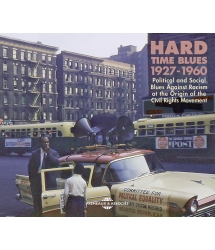
POLITICAL AND SOCIAL BLUES AGAINST RACISM AT THE...
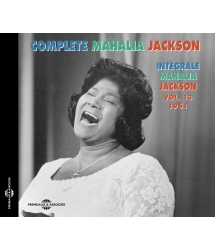
1961
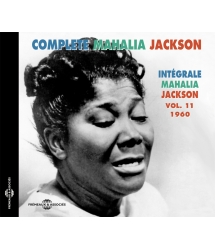
COMPLETE MAHALIA JACKSON VOL 11 - 1960
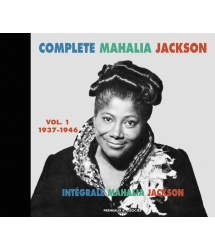
1937-1946




-
PisteTitleMain artistAutorDurationRegistered in
-
1Nobody But You LordMahalia JacksonTraditionnel00:04:151961
-
2The Love Of GodMahalia JacksonF.M. Lehman00:09:131961
-
3Everytime I Fell The Spirit I PrayMahalia JacksonMahalia Jackson00:03:421961
-
4Have You Any Time For JesusMahalia JacksonK. Morris00:05:521961
-
5Little David Play On Your HarpMahalia JacksonTraditionnel00:04:451961
-
6I Want To Be A ChristianMahalia JacksonTraditionnel00:03:111961
-
7Rockin In JerusalemMahalia JacksonTraditionnel00:03:551961
-
8Trail To HeavenMahalia JacksonArquilla00:03:411961
-
9I Know Prayer Changes ThingsMahalia JacksonR. Anderson00:04:511961
-
10The Only Hope We HaveMahalia JacksonM. Aikens00:05:241961
-
11What A Difference Since My Heart's Been ChangedMahalia JacksonR. Anderson00:04:181961
-
12The Holy Bible Pt 1Mahalia JacksonTraditionnel00:02:531961
-
13The Holy Bible Pt 2Mahalia JacksonTraditionnel00:02:041961
CLICK TO DOWNLOAD THE BOOKLET
Mahalia Jackson vol. 12
COMPLETE MAHALIA JACKSON
INTÉGRALE MAHALIA JACKSON
VOL. 12 - 1961
INTÉGRALE MAHALIA JACKSON
VOL. 12 - 1961
Par Jean Buzelin
1960 : première année d’une décennie qui allait apporter nombre de remue-ménage, perturbations et remises en question, tant aux États-Unis que dans les pays occidentaux. En cet été, le pays est en pleine période électorale, et Mahalia Jackson est sollicitée pour apporter son soutien à la campagne du jeune candidat démocrate, John Fitzgerald Kennedy. Celui-ci, largement soutenu par la communauté noire dans son ensemble, sera élu le 8 novembre.
Après ses enregistrements du mois de mai sous la conduite de Johnny Williams, qui ont donné l’album «?I Believe?» (1), Mahalia reprend ses tournées, concerts, shows télévisés… Relevons une brève dans le mensuel Jazz Magazine (N°60-juin 1960) : «?Mahalia Jackson a décidé de consacrer la totalité des rentrées d’argent que lui procure son nouveau contrat chez Columbia à l’édification d’un «?temple Mahalia Jackson?» à Chicago.?» (2) Et dans le numéro suivant de cette même revue (N°61-juillet/août 1960), nous trouvons un témoignage de poids et significatif concernant l’engagement, la force (powerful) et la solidité des racines qui constituent l’essence de son expression et de son art.
Il s’agit d’un blindfold-test (3) qui est soumis au contrebassiste «?rebelle?» Charles Mingus, alors fer de lance des jazzmen radicaux et engagés. Après l’écoute de six disques de jazzmen divers et non des moindres (4), le contrebassiste constate : «?Je suis chez un disquaire et j’ai écouté les six disques que vous m’avez passés jusqu’ici. Je n’ai envie d’en acheter aucun.?» Son interlocuteur, Leonard Feather, passe au suivant, I’m Going To Live The Life I Sing About In My Songs (5), et Mingus s’exclame : «?Ce disque, je tiens à l’acheter. (…) voilà ce qui manque terriblement aux autres — non seulement dans leur façon de jouer, mais dans leur manière de vivre. (…) Mettez cinq étoiles filantes?».(2)
Le 21 janvier 1961, invitée à l’intronisation du nouveau président, Mahalia Jackson entonne The Star-Spangled Banner, qu’elle connaît évidemment depuis les bancs de l’école. Quelques jours plus tard, le 27, la chanteuse rejoint Harry Belafonte, Sammy Davis Jr, Count Basie, Tony Bennett, Dean Martin et Frank Sinatra entre autres, sur la scène du Carnegie Hall de Nex York. Ils sont réunis autour de Martin Luther King pour soutenir son action en faveur des droits civiques. Rappelons que Mahalia est proche du pasteur depuis la Convention nationale démocrate de 1956, et qu’elle avait participé, en mai 1957, à un «?Prayer Pilgrimage for Freedom?» au Lincoln Memorial, chantant devant 35 000 personnes ; un rassemblement qui, a posteriori, peut être considéré comme un prélude à la grande marche d’août 1963 sur le même parvis.
Mahalia est sur la route en compagnie de ses accompagnatrices Mildred Falls et Louise Overall Weaver, et de son vieil ami Theo Frye (6) qui conduit la Cadillac — elle n’aime pas voyager en avion. Après (ou avant) l’Ohio, l’Arkansas, le Montana, le Texas… elle se retrouve, comme souvent, en Californie. Au Shrine Auditorium de Los Angeles, elle chante Green Leaves, la mélodie tirée de la musique du film «?Alamo?» que vient de composer Dimitri Tiomkin (7). Ce n’est pas un gospel song, dit-elle, «?mais il en donne la même impression?».(8) Mais, lorsque au UCLA’s Royce Hall, quelqu’un lui demande de chanter Rusty Old Halo dont elle fit un tube (N°1 au Top 40 en 1955) (5), elle s’exécute, mais tient à préciser qu’elle n’aime pas cette chanson «?Besides, my halo’s not going to be rusty?».(8)
À Hollywood, le 27 février, Mahalia Jackson enregistre Nobody But You Lord pour le programme de l’ONU destiné à venir en aide aux réfugiés du monde entier. Ce morceau traditionnel, interprété sur un rythme de gospel waltz, figurera sur un album United Nations UNM1. Probablement le lendemain, Mahalia enregistre un magnifique The Love Of God où elle atteint les cimes du grandiose grâce à un chant admirable et dépourvu de toute emphase, essentiellement soutenu par le piano, et ce durant plus de 9 minutes! Ce morceau, composé en 1917 par Frederick M. Lehman (1868-1953), est basé sur un poème juif araméen, Haddamut, datant du XIe siècle. Il sera inclus dans le prochain album de la chanteuse et même, un peu plus tard sur un 45 tours couplé avec Elijah Rock tiré d’un de ses récitals européens. Enregistré par les Voices of Tabernacle en 1959, The Love Of God est repris également, en ce même mois de février 61, par James Cleveland, puis par les Meditations Singers.
Tous les autres thèmes devant constituer le nouvel album Columbia de la chanteuse, «?Everytime I Feel The Spirit?», vont être enregistrés le 7 mars. Pour ce faire, la production a eu la bonne idée de confier à nouveau la baguette (et les baguettes car il joue lui-même de la batterie) et l’écriture des arrangements au jeune Johnny Williams qui s’était plutôt bien sorti de l’exercice précédent :
«?I Believe?». Il fait encore mieux cette fois-ci : le chœur mixte d’une douzaine de membres n’est pas envahissant, et la rythmique discrète et non omniprésente. Mildred Falls est évidemment au piano, et Louise Weaver tient à nouveau l’orgue. Depuis le premier concert du Carnegie Hall en 1950, et jusqu’en 1972, Mahalia fera souvent appel à cette organiste (décédée à Chicago en 1990 à l’âge de 74 ans).
Everytime I Fell The Spirit I Pray, chanté et joué sur un tempo bien rythmé et enlevé, n’est pas le negro spiritual bien connu, mais une re-création de Mahalia Jackson elle-même. De même, sur un rythme médium assez soutenu qui encadre une partie centrale arythmique, Mahalia reprend le traditionnel Walking In Jerusalem qu’elle avait enregistré en 1953 pour Apollo (9), et qui devient Rockin’ In Jerusalem. Little David, Play On Your Harp, avec un refrain très rapide qui alterne avec des couplets lents, et l’hymne I Want To Be A Christian, sont également deux morceaux traditionnels bien connus. S’ajoutent au programme un puissant Have You Any Time For Jesus de Kenneth Morris, un deep song lancinant de toute beauté, et deux œuvres de son vieux partenaire Robert Anderson, une reprise de Prayer Changes Things, un pur chant gospel enregistré une première fois en 1949 (10), et What A Difference Since My Heart’s Been Changed, un morceau lent dont Mahalia donne une interprétation vibrante exceptionnelle. Deux pièces moins «?fortes?», Trail To Heaven, de forme plus classique, et The Only Hope We Have, un gospel moderne écrit par Margaret Aikens-Jenkins, une jeune chanteuse qui commence à se faire connaître, complètent ce disque qui apparaît, après quelques albums «?discutables?» qui lui ont été imposés, comme l’un des meilleurs de Mahalia Jackson depuis des années. Comme il est écrit au verso de la pochette, et à part deux titres : «Ce nouveau disque comprend des chants encore jamais enregistrés par Miss Jackson, et seulement familiers des congrégations d’églises comme sa Greater Salem Baptist Church à Chicago» dont elle est membre depuis sa jeunesse.
Tandis que Mahalia Jackson s’apprête à embarquer pour une traversée d’une semaine en direction du Vieux Continent — le départ est prévu le 23 mars —, son producteur Irving Townsend négocie un projet pour la télévision : réaliser quatre-vingt cinq chansons filmées pour être ensuite diffusées régulièrement (comme des clips) dans la durée telle une série. Les tournages sont envisagés au retour au pays, vers la mi-juin 1961. Ces évènements seront bien sûr au programme des prochains épisodes de notre intégrale.
Nous avons déjà évoqué à plusieurs reprises, au cours de notre saga Mahalia Jackson, le nom de Studs Terkel, ami de longue date de la chanteuse. Journaliste et écrivain d’origine juive russe, Louis «?Studs?» Terkel, né à New York en 1912, habite à Chicago depuis l’âge de 8 ans. Américain libéral (11), il participe au milieu des années 30, durant le New Deal, à la Works Progress Administration’ Federal Writers project. Homme de radio, il est l’un des premiers à diffuser de la musique noire sur une chaîne «?blanche?». Dès 1946/47, les premiers disques Apollo de Mahalia Jackson attirent son attention. Il va l’entendre chanter à la Greater Salem Baptist Church et la reçoit dans son émission «?The Wax Museum?» sur la chaîne WENR de Chicago. Il l’invite une seconde fois puis la programme, vers 1949, dans son nouveau show télévisé «?Studs Place?», une première pour un(e) artiste de gospel. Lorsque Mahalia, qui vient de signer avec Columbia, est sollicitée par CBS qui veut lui consacrer une émission régulière, la chanteuse exige, et obtient, que la direction artistique soit confiée à Terkel, lequel est indésirable sur la chaîne car son nom figure sur la «?liste noire?» de Red Channels. CBS accepte à condition qu’il ne soit pas cité à l’antenne. Le premier «?Mahalia Jackson Show?» hebdomadaire est diffusé le 26 septembre 1954, le vingtième et dernier le 6 février 1955. Toujours grâce à Studs, un «Mahalia Jackson Show?» est programmé, peu après, sur la chaîne WBBM-TV. Studs Terkel a animé une émission à Chicago, «?The Studs Terkel Program?» sur la chaîne WFMT, de 1952 à 1997, où il a interviewé de multiples personnalités, allant des plus anonymes aux plus célèbres, qui constituent des témoignages de premier plan. Il reçoit notamment une nouvelle fois Mahalia Jackson le 30 septembre 1957. Ses entretiens ont été publiés dans plusieurs recueils parmi lesquels : Giants of Jazz (1956), Hard Times – Histoires orales de la Grande Dépression (1970), Working – Histoires orales du travail aux États-Unis (1974), La Bonne Guerre – Histoires orales de la Seconde Guerre mondiale, qui a obtenu le Prix Pulitzer en 1984, Race – Histoires orales d’une obsession américaine (1990) (12). Studs Terkel, qui était membre de l’Académie des Arts et Lettres aux USA depuis 1997, est mort à Chicago en 2008.
L’extrait d’une émission de télévision, publié sur un rare 45 tours U.S.A. 109, qui permet d’entendre Studs Terkel présenter Mahalia Jackson, offre une belle conclusion à notre présent volume.??
Les célébrations du cinquantenaire de la grande marche de Washington le 28 août 1963, où plusieurs centaines de milliers de personnes se sont rassemblées pour l’égalité des droits, ont permis la révélation d’un témoignage étonnant, celui de Clarence B. Jones, alors conseiller de Martin Luther King. Celui-ci a raconté au New Orleans Times (13) que Mahalia Jackson, qui avait chanté auparavant How I Got Over, et qui se trouvait à proximité du leader noir pendant son intervention, lui aurait lancé : «?Parle-leur du rêve, Martin ! parle-leur du rêve.?» (Elle l’avait entendu quelques semaines plus tôt faire référence à ce rêve lors d’un discours à Détroit le 23 juin). Et c’est à partir de là que le Dr King a changé la teneur de son allocution en enchaînant avec le désormais historique I had a dream. Clarence Jones ajoute : «?C’était l’une des plus grandes chanteuses de Gospel du monde qui criait ses conseils à l’un des plus grands prédicateurs baptistes du monde (…). Elle a peut-être tenu compte du fait qu’il y avait 300?000 personnes, et elle a juste crié «?Parle-leur du rêve?». Quelqu’un d’autre lui aurait crié dessus, il l’aurait probablement ignoré. Il n’a pas ignoré Mahalia Jackson.?»
Jean BUZELIN
© FRÉMEAUX & ASSOCIÉS 2014
Notes
(1) Voir Complete Mahalia Jackson Vol. 11 (FA 1321).
(2) Lire dans le supplément «?Les Archives JazzMag 1960/62?» du N° 645-janvier 2013.
(3) Écoute de disques «?à l’aveugle?» ; l’auditeur ne connaît pas les interprètes et doit attribuer un certain nombre d’étoiles (jusqu’à 5) à ce qu’il vient d’entendre.
(4) Manny Albam, Clifford Brown, George Shearing, Johnny Hodges, le trio Lambert-Hendrix-Ross, Sonny Stitt et Oscar Peterson, puis Dizzy Reece… Excusez du peu !
(5) Voir Complete Mahalia Jackson Vol. 5 (FA 1315).
(6) Mahalia Jackson a connu Theo Frye en 1938, comme Robert Anderson, alors qu’ils étaient membres des premiers Roberta Martin Singers.
(7) Dimitri Tiomkin (1894-1979), né en Ukraine et arrivé aux États-Unis en 1925, est l’un des plus illustres et prolifiques compositeurs de musiques de films.
(8) Cité par Laurraine Gorreau ; voir les ouvrages consultés.
(9) Voir Complete Mahalia Jackson Vol. 4 (FA 1314).
(10) Voir Complete Mahalia Jackson Vol. 2 (FA 1312).
(11) Ce qu’on traduit en France par «?appartenant à la gauche radicale?».
(12) Traduits en français (Ed. Amsterdam).
(13) Entendu également dans le documentaire «?La Longue Marche de Martin Luther King?» de John Akomfrah diffusé sur France 3, ce témoignage circule largement sur internet.
Ouvrages consultés
Laurraine Gorreau : Mahalia (Lion Pub., UK 1976 - 2e édition)
Jules Schwerin : God To Tell It :Mahalia Jackson (Oxford University Press, 1992)
Cedric J. Hayes & Robert Laughton : Gospel Discography 1943-1970 (Eyeball Productions Inc., 2007)
Nous remercions particulièrement pour leur aide Patrice Buzelin et Friedrich Mülhöcker, qui nous a prêté le rare disque U.S.A. 109.
Photos & collections : Sony Music Photos Archives, Bob Parent, X (D.R.).
Photo de couverture : Mahalia Jackson au Lincoln Memorial le 17 mai 1957.
COMPLETE MAHALIA JACKSON - VOL 12
By Jean Buzelin
1960: the start of a decade that would bring turmoil, numerous disturbances and many questions, both in the United States and the Western world. In the summer America was in full electoral swing and Mahalia Jackson was in demand to lend her support to the campaign of the young Democrat candidate John F. Kennedy. On 8 November, with wide support from the black community, he was elected President.
Following her recordings in May directed by Johnny Williams, which resulted in the album “I Believe” (1), Mahalia continued with her tours, concerts, radio shows… A short article in the monthly French Jazz Magazine (N° 60-June 1960) reported “Mahalia Jackson has decided to donate all the proceeds from her new contract with Columbia to the construction of a “Mahalia Jackson temple” in Chicago”. (2) And in the following number of the same magazine (N° 61-July/August 1960), there was a very strong testament to the strength, power and deep roots that formed the essence of her art. It took the form of a blindfold test (3) on double bass player Charles Mingus, at the time leader a group of radical and committed jazz men. After listening to six recordings by various excellent musicians (4), the bass player said “I’ve just listened to six recordings and I’ve no desire to buy any of them.” His interviewer, Leonard Feather, then played the next one, I’m Going To Live The Life I Sing About In My Songs (5), and Mingus exclaimed “I want to buy this record… this is what is lacking in the others… not only in the way they play, but in their way of life… give it 5 shooting stars”. (2)
On 21 January 1961, as a guest at the inauguration of the new president, Mahalia sang The Star Spangled Banner which, of course, she had known since her schooldays. A few days later, on the 27th, she joined up with Harry Belafonte, Sammy Davis Jr, Count Basie, Tony Bennett, Dean Martin and Frank Sinatra among others on stage at the Carnegie Hall in New York. They had gathered together around Martin Luther King in support of his Civil Rights movement. Mahalia had close ties with the preacher since the National Democratic Convention in 1956 and, in May 1957, she had taken part in a “Prayer Pilgrimage for Freedom” at the Lincoln Memorial, singing to a crowd of 35,000; a gathering that can be seen with hindsight as a prelude to the great march of August 1963 to the same square.
Mahalia was then back on the road together with her accompanists Mildred Falls and Louise Overall and her old friend Theo Frye (6) who drove the Cadillac – she did not like travelling by plane. After (or before) Ohio, Arkansas, Montana, Texas… she ended up, as so often, in California. At the Shrine Auditorium in Los Angeles, she sang Green Leaves, the air from the film “Alamo” which Dimitri Tiomkin had just composed. (7) She said it wasn’t a gospel song but “it feels like one”. (8) However, at UCLA’s Royce Hall, when someone requested Rusty Old Halo with which she had had a hit (N°1 in the Top 40 in 1955) (5), she sang it but insisted on explaining that she didn’t like the song “Besides, my halo’s not going to be rusty”. (8)
In Hollywood, on 27 February, Mahalia recorded Nobody But You Lord for the UNO programme in aid of refuges throughout the world. A traditional piece which, interpreted as a gospel waltz, featured on the album United Nations UNM1. It was probably the next day when Mahalia recorded a magnificent The Love Of God on which she surpasses herself with a superb vocal stripped of any false pomposity, backed mainly by the piano and which goes on for over 9 minutes! Composed in 1917 by Frederick M. Lehman (1868-1953), it is based on an Armenian Jewish poem Haddamut, dating from the 11th century. It was included in her next album and even, a little later, on a single 45 backed by Elijah Rock from one of her European concerts. Recorded by the Voices of the Tabernacle in 1959, The Love Of God was also reprised, and again in February 1961 by James Cleveland, then by the Meditations Singers.
All the other themes that would make up the singer’s new Columbia album “Every Time I Feel The Spirit”, were recorded on 7 March. The production team had the excellent idea of entrusting the leadership and arrangements to the young Johnny Williams (also drummer) who had made a good job of the preceding “I Believe”. He did even better this time: the mixed choir of a dozen members and the rhythm section remain discreetly in the background, while Mildred Falls is clearly heard on piano and Louise Weaver is again on organ. Since her first Carnegie Hall concert in 1950, until 1972, Mahalia frequently called on this organist (who died in Chicago in 1990 at the age of 74).
The upbeat and rhythmic version of Everytime I Feel The Spirit I Pray is not the well-known Negro spiritual but a re-working by Mahalia herself. Similarly, with a sustained medium rhythm framing a central arrhythmic part, Mahalia reprised the traditional Walking In Jerusalem which she had recorded in 1953 for Apollo (9) and which became Rockin’ In Jerusalem. Little David, Play On Your Harp, with a rapid chorus alternating with slower couplets, and the hymn I Want To Be A Christian are familiar traditional titles. The programme also included a powerful Have You Any Time For Jesus by Kenneth Morris, a piercingly moving and very beautiful song plus two works by her old partner Robert Anderson, a revival of Prayer Changes Things, a pure gospel song recorded for the first time in 1949 (10), and What A Difference Since My Heart’s Been Changed, a slow piece which Mahalia interprets in an exceptionally emotive way. Two quieter titles, the more classical Trail To Heaven and The Only Hope We Have, a modern gospel song written by Margaret Aikens-Jenkins, an up and coming young singer, complete this record which, after several “doubtful” albums that she had been forced to make, was one of Mahalia Jackson’s best for several years. As the sleeve notes point out “This new record includes songs never recorded by Miss Jackson before and familiar only to the congregations of such churches as her Greater Salem Baptist Church in Chicago” where she had been a member since her youth.
While Mahalia was getting ready to embark on a week’s crossing to Europe – her departure was planned for 23 March – her producer Irving Townsend negotiated a television project: eighty-five songs filmed and to be broadcast regularly as clips which would last the length of a series. Filming was planned for her return to the US, towards mid-June 1961.
These will, of course, feature in the next episodes of the Mahalia Jackson story.
Throughout this story we have already mentioned several times the name of Studs Terkel, Mahalia’s long-time friend. A journalist and writer of Russian Jewish extraction, Louis “Studs” Terkel, born in New York in 1912, lived in Chicago from the age of eight. An American liberal (11), in the mid-30s during the New Deal, he was part of the Works Progress Administration Federal Writers’ Project. A radio man, he was one of the first to broadcast black music on a white channel. As early as 1946/47 his attention was drawn to the Apollo records of Mahalia Jackson. He went to hear her sing at the Greater Salem Baptist Church and had her as a guest on his “The Wax Museum” show on Chicago’s WENR channel. He invited her a second time and then, towards 1949, featured her on his new TV show “Studs’ Place”, a first for a Gospel singer. When Mahalia, who had just signed up with Columbia, was approached by CBS who wanted to give her a regular programme, the singer insisted that that Terkel should be artistic director but he was persona non gratis on the channel as his name was on the black list of the Red Channels. CBS accepted on condition that his name was not mentioned on air. The first weekly “Mahalia Jackson Show” was aired on 26 September 1954 and the 20th and final one on 6 February 1955. Thanks to Studs, a “Mahalia Jackson Show” went out shortly after on WBBM-TV.
Studs Terkel chaired a show in Chicago, “The Studs Terkel Program” on WFMT channel from 1952 to 1997, where he interviewed numerous personalities, from virtual unknowns to the most famous, which provides a wealth of information. In particular, he received Mahalia Jackson again on 30 September 1957. His interviews were published in several collections including: Giants of Jazz (1956), Hard Times – An Oral History of the Great Depression (1970), Working – People Talk About What They Do All Day and How They Feel About What They Do (1974), The Good War which won the Pulitzer Prize in 1984 (12), Race: What Blacks and Whites Think and Feel About The American Obsession (1992). Studs Terkel, who became a member of the American Academy of Arts and Letters in 1997, died in Chicago in 2008.
The extract from a TV programme, issued on a rare 45 USA 109, on which Studs Terkel interviews Mahalia Jackson, provides the perfect conclusion to this CD.
Celebrations of the 50th Anniversary of the march on Washington on 28 August 1963, when thousands of people gathered to support the Civil Rights movement, led to an astonishing testimony, that of Clarence B. Jones, Martin Luther King’s adviser at the time. He told the New Orleans Times (12) that Mahalia Jackson, after singing How I Got Over, and was standing near the black leader during his speech called out to him “Tell them about the dream, Martin!” (A few weeks earlier she had heard him refer to this dream during a speech in Detroit on 23 June). And it was as a result that Dr. King changed the tenor of his speech launching into the historic I had a dream. Clarence Jones added: “This was one of the greatest Gospel singers in the world shouting advice to one of the greatest Baptist preachers in the world (…). She perhaps took into account the 300,000 strong crowd and just shouted “Tell them about the dream”. If someone else had shouted at him he would probably have ignored it. He didn’t ignore Mahalia Jackson.”
Adapted from the French text of Jean BUZELIN by Joyce WATERHOUSE
© FRÉMEAUX & ASSOCIÉS 2014
Notes
(1) See Complete Mahalia Jackson Vol.11 (FA1321).
(2) See in the supplement to “Les Archives JazzMag” 1960/62, N° 645 January 2013.
(3) In a blindfold test the listener does not know who is performing and must award a certain number of stars (up to 5) to what he hears.
(4) Manny AlbaM, Clifford Brown, George Shearing, Johnny Hodges, the Lambert-Hendrix-Ross trio, Sonny Stitt, Oscar Peterson and then Dizzy Reece.
(5) See Complete Mahalia Jackson Vol.5 (FA1315).
(6) Mahalia Jackson knew Theo Frye in 1938, like Robert Anderson, when they were part of the first Roberta Martin Singers.
(7) Dimitri Tiomkin (1894-1979), born in Ukraine and arrived in the States in 1925, was one of the most illustrious and prolific composers of film music.
(8) Quoted by Laurraine Gorreau; see works consulted.
(9) See Complete Mahalia Jackson Vol.4 (FA1314).
(10) See Complete Mahalia Jackson Vol.2 (FA1312).
(11) In French translates as “appartenant à la gauche radicale”.
(12) Also heard in “The Long March of Martin Luther King” by John Akomfrah broadcast on France 3, and widely available on Internet.
Works consulted
Laurraine Gorreau: Mahalia (Lion Pub. UK 1976 – 2nd edition).
Jules Schwerin: God To Tell It: Mahalia Jackson (O.U.P., 1992).
Cedric J. Hayes & Robert Laughton: Gospel Discography 1943 – 1970 (Eyeball Productions, Inc. 2007).
With special thanks for their help to Patrice Buzelin and Friedrich Mühlöcker for the loan of the rare U.S.A. 109 record.
Photos & collections: Sony Music Photos Archives, Bob Parent, X (D.R.).
Cover photo: Mahalia Jackson at the Lincoln Memorial on May 17th 1957.
1. NOBODY BUT YOU LORD (Trad.) RHCO 70006
2. THE LOVE OF GOD (F.M. Lehman) RHCO 7000?
3. EVERYTIME I FEEL THE SPIRIT I PRAY (M. Jackson)
4. HAVE YOU ANY TIME FOR JESUS? (K. Morris)
5. LITTLE DAVID, PLAY ON YOUR HARP (Trad. - arr. M. Jackson)
6. I WANT TO BE A CHRISTIAN (Trad. - arr. B. Smith)
7. ROCKIN’ IN JERUSALEM (Trad. - arr. M. Jackson)
8. TRAIL TO HEAVEN (F. Arquilla)
9. I KNOW PRAYER CHANGES THINGS (R. Anderson)
10. THE ONLY HOPE WE HAVE (M. Aikens)
11. WHAT A DIFFERENCE SINCE MY HEART’S BEEN CHANGED (R. Anderson)
12. THE HOLY BIBLE Pt.1 (Trad.) SL 2098
13. THE HOLY BIBLE Pt.2 (Trad.) SL 2099
Mahalia Jackson (vocal) with:
(1-2) prob. Mildred Falls (piano), Louise Overall Weaver-Smothers (organ), Bob Bain (guitar on 1), Keith M. “Red“ Mitchell (bass on 1), Johnny Williams (drums on 1), unknown (vocal choir on 2). Hollywood, 27-28/02/1961.
(3-11) Orchestra & Chorus cond. by Johnny Williams featuring Mildred Falls ; Mildred Falls (piano), Louise Overall Weaver-Smothers (organ), Tommy Tedesco (guitar), Phil Stephens (bass), Johnny Williams (drums). Hollywood, 07/03/1961.
(12-13) Studs Terkel (speaking on 12), unknown (piano)(celeste)(organ)(mixed vocal group). Prob. TV The Ed Sullivan Show. Prob. New York City, ca. early 1960s.
1960 : première année d’une décennie qui allait apporter nombre de remue-ménage, perturbations et remises en question, tant aux États-Unis que dans les pays occidentaux. En cet été, le pays est en pleine période électorale, et Mahalia Jackson est sollicitée pour apporter son soutien à la campagne du jeune candidat démocrate, John Fitzgerald Kennedy. Celui-ci, largement soutenu par la communauté noire dans son ensemble, sera élu le 8 novembre.
Jean Buzelin
1960: the start of a decade that would bring turmoil, numerous disturbances and many questions, both in the United States and the Western world. In the summer America was in full electoral swing and Mahalia Jackson was in demand to lend her support to the campaign of the young Democrat candidate John F. Kennedy. On 8 November, with wide support from the black community, he was elected President.
Jean Buzelin
«?Parle-leur de ton rêve, Martin?».
Mahalia JACKSON à Martin Luther KING
(Washington, le 23 août 1963)
“Tell them about your dream, Martin”.
Mahalia Jackson to Martin Luther King
(Washington, 23 August 1963)
L’Intégrale chronologique Mahalia Jackson (de même que la série consacrée à Sister Rosetta Tharpe) offre l’œuvre exhaustive de celle qui restera l’une des plus grandes artistes de Gospel, et par la même, l'une des grandes inspiratrice de la culture noire-américaine du XXe siècle. Les disques sources, en provenance de la collection de Jean Buzelin, auteur de l'Intégrale, aidé par l’ensemble des collectionneurs des œuvres de Mahalia Jackson, font l’objet des meilleurs transferts analogiques et d’une restauration numérique utilisant les technologies les plus sophistiquées sans jamais recourir à une modification du son d’origine.
Patrick Frémeaux et Claude Colombini
The complete Mahalia Jackson recordings (presented chronologically as in the Sister Rosetta Tharpe series) reveal a personality who will remain one of the greatest-ever Gospel artists, a singer who filled 20th century Afro-American culture with inspiration. The source of this vital music is the collection of Jean Buzelin, the author of this anthology, together with the aid of collectors of Mahalia Jackson's work; all these recordings have been restored with the best analog transfers and most sophisticated technology available, to avoid any alteration of the original sound.
CD Complete Mahalia Jackson - Intégrale Mahalia Jackson vol. 12 1961 © Frémeaux & Associés 2014
